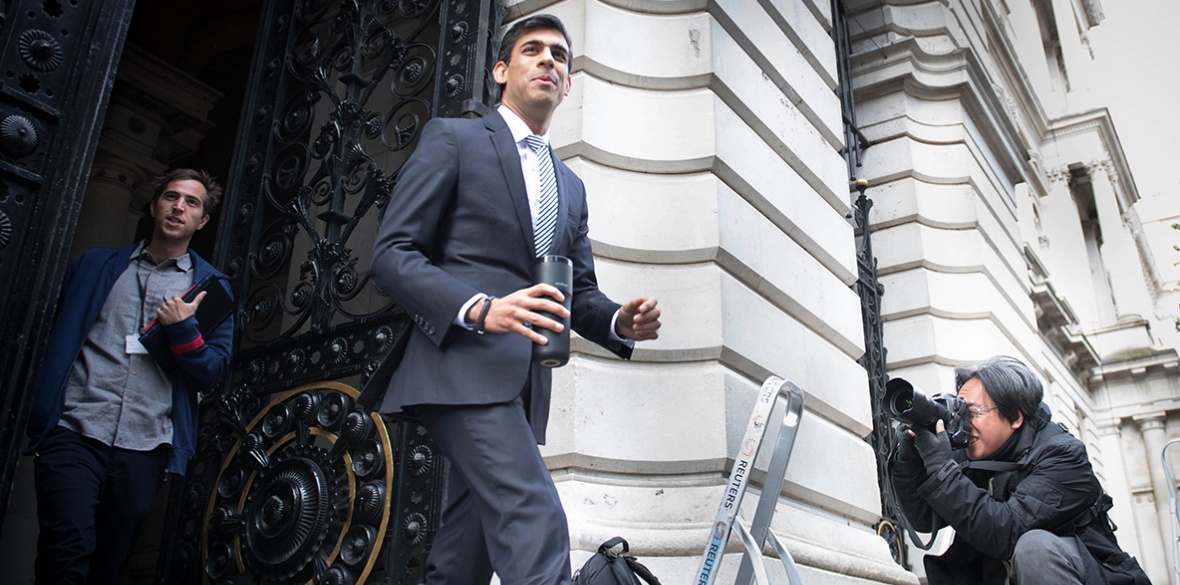RISHI SUNAK is reputed to be the richest man in Parliament with a fortune accumulated through Stakhanovite labours at the banking coalface. With his nominal boss, Boris Johnson, on a downward career path he may be calculating that sooner or later a promotional pay rise may add to his earnings.
One thing is assured, he will not be in personal need of the £1,000 employment subsidy he has awarded every employer who puts a furloughed worker back on the payroll.
His recovery package includes a six-month subsidy scheme for young workers aged 16-25 about which the only argument is how extensive it might be and a temporary cut in stamp duty which will please the estate agent class and anyone fortunate enough to fork out for a £500,000 house.
Bizarrely, the more affluent gad-about-town types will have their dining out subsidised. And this when subsidising school meals is seen as an impossible burden on the public finances.
Sunak, currently basking in the sunshine of public approval for his dispensation of the subsidies necessary to stave off collapse, has two basic problems. The first is that the effect of the coronavirus crisis on the British economy is serious but it is deeper and more profound than it might be precisely because of the austerity policies pursued by his Conservative and Lib Dem predecessors in office.
This is compounded by the chaotic and contradictory strategies employed by the government to deal with Covid-19 and by the ideological confusion engendered in Tory ranks by the various stimulus packages he employs which – to the reactionary mindset – appear counterintuitive. Hence the anxieties about how these measures are going to be paid for.
The second problem is that even the most extravagant stimulus measures may not be sufficient to head off the crisis of capitalist accumulation already apparent before the coronavirus crisis struck.
It is interesting how differently countries have responded to the Covid-19 pandemic. Striking successes in mobilising a full spectrum of available human and material resources are apparent in China, Cuba, Vietnam, even sanctioned and impoverished Venezuela and in the Indian state of Kerala, run by communists for decades.
There are capitalist states – principally those which learnt the lessons of the Sars outbreak – which have coped well; New Zealand and even Australia, South Korea and Japan.
These are places where rational thought, science and active public sectors underpinned their response. What is striking about the socialist countries in this category is how extensive were the human and material resources mobilised and how public ownership of the key sectors and focused central government played a part alongside their ability to mobilise the deep structures of their civil societies, functioning in harmony with the socialist state.
It is in the most dysfunctional states – and those most advanced down the road to the privatised anarchy of capitalist market mania and where the disintegration of public services is far advanced – that the responses have been least effective. In the test cases of this theory – the US, Brazil and Britain – the fact that these countries are led by comic book characters add horror to the equation.
John Lewis and Boots are the latest retailers to announce job cuts. Our unions are responding well to the jobs crisis with concrete proposals and even legal action and consequently membership is growing.
As the scale of these overlapping crises emerges it is essential that trade unionists rise to the challenge.
That means beginning to consider how the constant battle to overcome the inevitable problems of capitalist society might better be tackled if we can secure more profound changes in the way society is organised.











